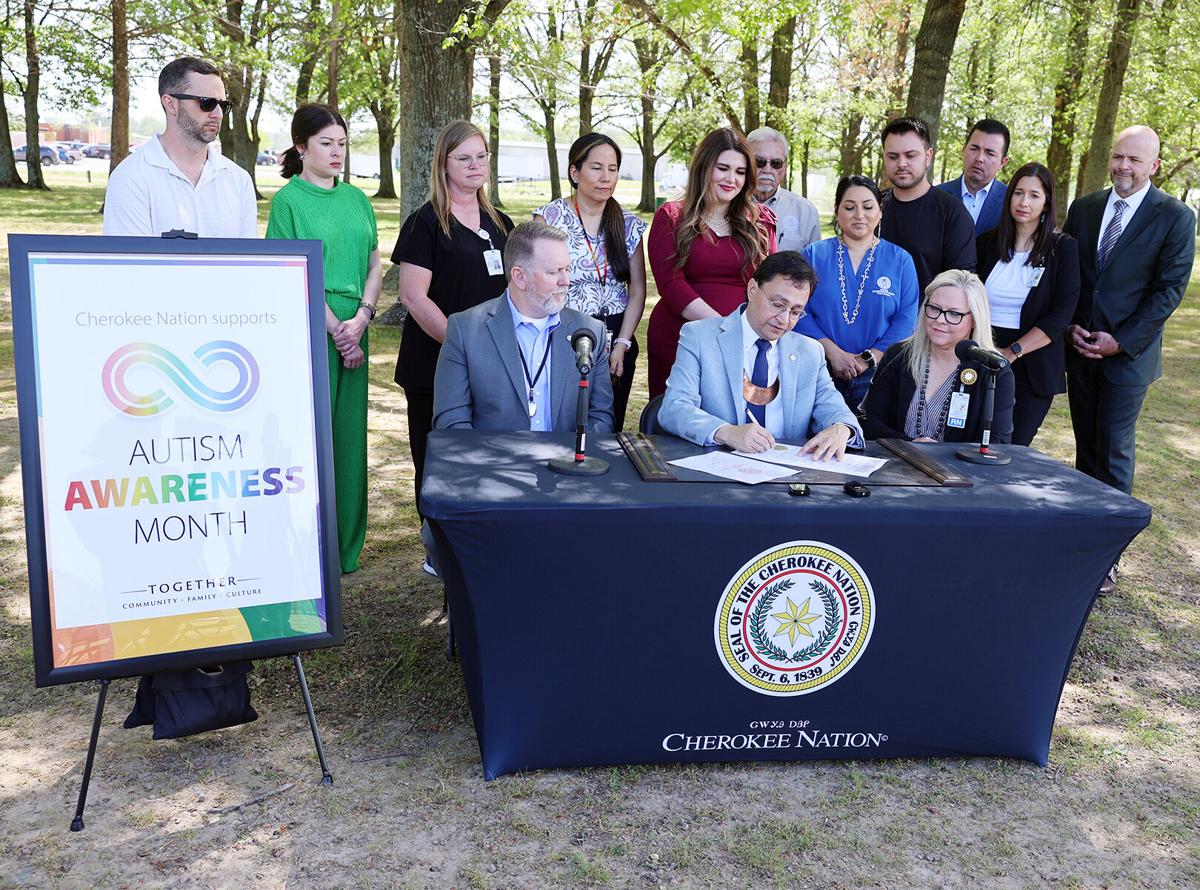
- Details
- By Chuck Hoskin Jr
Guest Opinion. Autism is a term covering many different ways of being human. In the modern world, we are just beginning to understand this complex syndrome and how to best support our friends and family members on the autism spectrum. Still, no matter what challenges and potentials our fellow community members bring, everyone deserves to feel valued, understood and accepted. As we take this journey together, let's remember to listen, learn and celebrate the beauty of our differences.
First Lady January Hoskin and I are proud to stand alongside the dedicated members of the Cherokee Nation Autism Task Force as we improve support for individuals with autism and their families across the reservation. This is deeply personal for us, as we have beautiful grandchildren who navigate the world with autism. Their unique perspectives and experiences have inspired me to learn more about autism and enact meaningful change.
The Cherokee Nation Health System is not only the best in Indian Country; it is among the top institutions anywhere that offer world-class wellness. Part of our commitment to excellence in health and wellness is always looking for issues we need more focus on, even if they impact a smaller part of our population.
A recent report issued by the task force is a milestone in better meeting the needs of individuals with autism and their families. Through extensive community engagement, analysis of our existing services, and strategic collaboration with stakeholders, we have identified key areas for improvement. From housing to workforce development and educational support, the report is full of concrete recommendations that we can execute.

One key recommendation is to expand housing options tailored to the unique needs of individuals. By creating supportive housing environments that prioritize safety, accessibility, and sensory considerations, we can make big strides in quality of life and promote greater independence.
Additionally, the task force emphasized the importance of considering the whole lifespan, because the need for support does not end at age 18 or 21. This includes promoting employment opportunities and providing ongoing support services.
Workforce development is another critical area. Cherokee Nation has a role in providing training and educational resources for employers, to help them create more inclusive work environments. A supportive workplace can be the key to unlocking huge potential of individuals on the autism spectrum.
The task force also highlighted the need for enhanced educational support for individuals with autism, including specialized programs and resources to meet diverse learning needs.
Cherokee Nation has an exceptional partner in the non-profit Pervasive Parenting Center. We are working in tandem to ensure access to needed services. We appreciate their work and collaborative spirit.
As we move forward, I am excited to see the task force's recommendations turn into real actions that improve lives. I am grateful for the task force members' compassion and hard work in examining needs within our tribe and communities. We are committed to building an inclusive government where individuals with autism are supported and embraced. Together, we can create a brighter future for all citizens of the Cherokee Nation.
Chuck Hoskin, Jr. is the principal chief of the Cherokee Nation.
More Stories Like This
The SAVE America Act Threatens Native Voting Rights — We Must Fight BackThe Presidential Election of 1789
Cherokee Nation: Telling the Full Story During Black History Month
Jesse Jackson Changed Politics for the Better
Native News Online at 15: Humble Beginnings, Unwavering Mission
Help us defend tribal sovereignty.
At Native News Online, our mission is rooted in telling the stories that strengthen sovereignty and uplift Indigenous voices — not just at year’s end, but every single day.
Because of your generosity last year, we were able to keep our reporters on the ground in tribal communities, at national gatherings and in the halls of Congress — covering the issues that matter most to Indian Country: sovereignty, culture, education, health and economic opportunity.
That support sustained us through a tough year in 2025. Now, as we look to the year ahead, we need your help right now to ensure warrior journalism remains strong — reporting that defends tribal sovereignty, amplifies Native truth, and holds power accountable.
 The stakes couldn't be higher. Your support keeps Native voices heard, Native stories told and Native sovereignty defended.
The stakes couldn't be higher. Your support keeps Native voices heard, Native stories told and Native sovereignty defended.
Stand with Warrior Journalism today.
Levi Rickert (Potawatomi), Editor & Publisher

